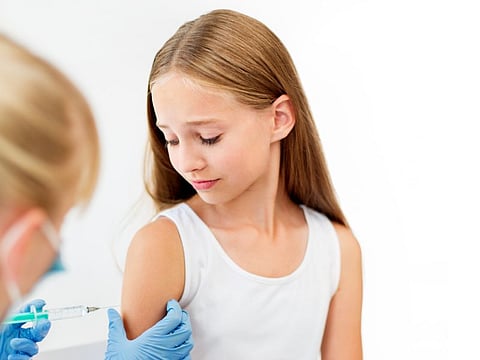TUESDAY, Nov. 6, 2018 (HealthDay News) -- HPV vaccination rates are still too low to cut cervical cancer cases as much as is possible in the United States, a new report warns.
While HPV (human papillomavirus) vaccination has increased in recent years, rates remain well below the federal government's Healthy People 2020 goal of 80 percent of age-eligible adolescents, according to the recent report.
"We have a safe, effective vaccine that protects against a cancer-causing virus, and we applaud the efforts of cancer and immunization leaders joining forces and rising to the challenge of accelerating HPV vaccine uptake," said Barbara Rimer, chair of the President's Cancer Panel, which produced the report.
"Yet, the fact remains that this vaccine remains seriously underutilized -- we are still missing opportunities to prevent cancer and save lives," she added in a panel news release.
According to the U.S. Centers for Disease Control and Prevention, boys and girls aged 11 or 12 should get two shots of HPV vaccine six to 12 months apart. Those who receive their two shots less than five months apart require a third dose of HPV vaccine, the agency added.
While the percentage of kids who started the HPV vaccine series increased an average of 5 percent a year between 2013 and 2017, less than half of teens were fully vaccinated as of 2017.
The new report suggests a number of ways to increase HPV vaccination rates. These include: increasing parents' acceptance of the vaccination; improving access to vaccination; reducing missed opportunities at medical appointments to recommend and administer the vaccine; and promote use of the vaccine worldwide.
HPV is a very common virus, with about 14 million people in the United States -- including teens -- infected each year, according to the CDC.
Among infected Americans, the virus causes 33,700 cancers in men and women, but vaccination can prevent most of the cancers (about 31,200) from ever developing, the CDC said.
Infection with HPV can cause cancers of the cervix, vagina and vulva in women; cancers of the penis in men; and
cancers of the anus and back of the throat, including the tongue and tonsils, in both women and men.
More information
The U.S. Centers for Disease Control and Prevention has more on HPV vaccination.


